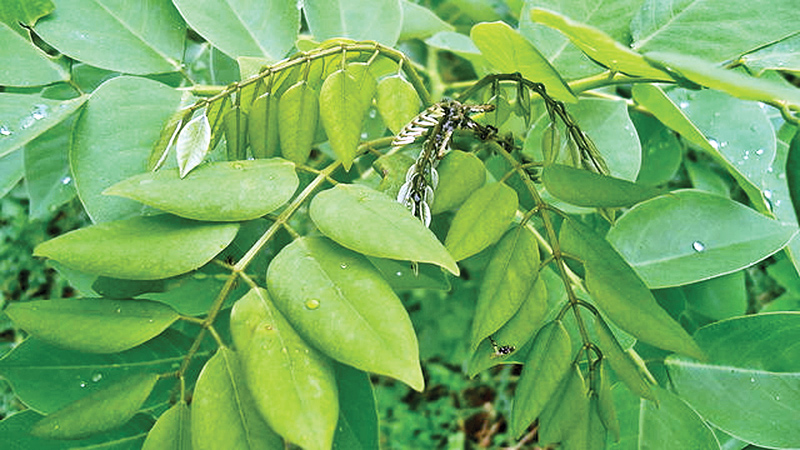Rajawaka forest, 15 km east of Balangoda town in the Ratnapura district, which is rich in medicinal herbs and other valuable plants and trees, is being denuded by farmers from surrounding villages. This has been a problem for nearly two decades.
Farmers needing sticks to support their young vegetable plants used to gather them by cutting down plants such as gammalu, pihibiya, duhundu, sudu handun, and wedanghu in the forest. However, a project to supply gliricidia to these farmers has successfully eliminated this problem of denudation of the forest.
Farmers in the remote villages of Tanjantenna, Kuragala, Watawala, Mulgama, Molamure, Teladiriya, Godakumbura and Mahawalatenna grow vegetables and breed cattle as a means of livelihood. Most of them plant bean and tomato because they have been effective and profitable crops. Each young plant needs a stick to support growth. As these sticks are not amply available in their home gardens, the farmers used to cut down young trees in the nearby Rajawaka forest.
Sabaragamuwa Civil Development Foundation President Palitha Karunaratna said that although they were arrested and fined, the farmers used to continue their practice of felling trees in the forest. Studies revealed that annually five million plants were cut down in this manner.
“We grouped 140 farmers in two grama niladari divisions - Kuragala and Tanjantenna - and made them aware of the harm they were causing to the forest. We also gave them gliricidia to plant, so that they could use these sticks for their crops instead of denuding the forest. This project has been successful.”
Farmer A. M. Premadasa who now plants gliricidia, said, “The Sabaragamuwa Civil Development Foundation made us aware of the damage we were causing to nature. Through the Foundation, each farmer was supplied with 2,000 gliricidia saplings. Now in every home garden, gliricidia is flourishing. It is a multipurpose crop which can be used for fodder, organic manure, firewood, and even for energy generation. We are also able to sell the surplus in the market for Rs. 4 a stick.”
G. M. Piyaseeli said, “In the past, we had no knowledge about the importance of the environment. It is through the Foundation that we have been made aware of the damage we have caused to the environment. The gliricidia plant which was introduced to us is of great value in many ways. Our pepper plantation has adjusted well to this tree. We have taken steps to reuse one stick for two seasons. We no longer invade the forest around our village.”
I.W. A. Upasena said, “I have cattle as well as vegetable plots. Within a short period after planting gliricidia, it was possible to obtain two or three sticks. Later on, the number grows. I use the foliage as fodder and the excess sticks are sold to collection centres. If we propagate this plant in other areas, it would ultimately lead the way to installing a power generation plant.”



Add new comment